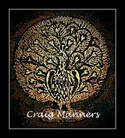|
Impossible People
A Manifesto for Our Moment SUBSCRIBE TO BREAKPOINT DAILY By ERIC METAXAS Once in a while, a book comes along that reminds me of those “you are here” labels on hiking maps. I want to tell you about such a book, and how it can reorient you. In the opening scene of the 2001 film adaptation of “The Fellowship of the Ring,” Cate Blanchett’s Galadriel whispers hauntingly, “The world has changed. I can feel it in the water. I feel it in the earth. I smell it in the air. Much that once was is lost; for none now live who remember it.” Western Christians in 2016 can relate. Something has shifted. The world we inhabit seems to have become disenchanted, and so many of those around us have entered a state in some ways worse than atheism—a state of indifference toward God and the supernatural. All of this has made evangelism and discipleship a lot more challenging. As sociologist Peter Berger wrote, we live in “a world without windows.” And for the inhabitants of windowless late modernity, questions about sin, salvation and ultimate meaning just don’t matter that much. So, how did we get here? And more importantly, what does being a Christian look like in this context? Os Guinness, who needs no introduction, says the only right response today is to become what he calls “Impossible People.” That’s the name of his latest book, appropriately subtitled, “Christian Courage, and the Struggle for the Soul of Civilization.” Folks, this book is a manifesto for our moment—a guide on how to live counter-culturally in what Os describes as our “cut-flower civilization.” But what about the bizarre term “impossible people”? Where does that come from? Well, it was originally applied to eleventh-century Benedictine reformer, Peter Damian. Among other things, this “impossible man” spoke out against the practice of selling church positions for money as well as against widespread sexual sin among the clergy. His commitment to Jesus alone was so fierce that he won a reputation for being, as Os puts it, “unmanipulable, unbribable, and undeterrable.” “Impossible people,” Os explains, “are different people. And different they are called to be or they will be irrelevant.” But that’s not easy in our cultural moment. We live in a civilization that has rejected its own foundations and embarked on a project to build what he calls a new, secular Babel. But it’s becoming ever clearer that this secular Utopia can’t hold together. Why? Because the very belief in freedom that made Western liberal democracies uniquely successful is crumbling, replaced by the concept of consensus. As Os points out, the Christian doctrines of the Imago Dei, of Original Sin, and transcendent truth undergird our belief in freedom. Secular modernity lacks these foundational doctrines. Like a cut flower, it can maintain its beauty only so long without its roots. Soon it will wilt, and ultimately die. “Impossible people” are here precisely to arrest this decline—to frustrate the secular project by consciously living out a belief in a supernatural reality beyond our windowless world. Os issues this timely call, and maps out a strategy for “impossible people” to take up Damian’s mantle and stubbornly refuse to conform. Now, this book is absolutely prophetic; it is also fun to read. Most of all, it’ll give you a lay of the spiritual landscape and, as our BreakPoint assistant editor Shane Morris puts it, “a buoying sense of how silly the secular experiment really is.” I’m pleased to add that Os will be speaking at our 2017 William Wilberforce Weekend, along with Ravi Zacharias and many others. So please come to BreakPoint.org to pick up a copy of “Impossible People,” and we’ll also tell you how to register for the conference, where we’ll explore what it means to be unmanipulable, unbribable, undeterrable, impossible people. Impossible People: Christian Courage and the Struggle for the Soul of Civilization Os Guinness | IVP Books | July 2016 Information on the 2017 Wilberforce Weekend Wilberforce Weekend 2017
0 Comments
Your comment will be posted after it is approved.
Leave a Reply. |
Craig MannersWhile much of what is written in this Blog may currently appear to be counter-cultural, given our post-truth culture, it is in no way counter-human beings. I am always for people no matter what they think, do, or may have done in their past. Where I put forward ideas or debate against certain ideology, behaviour, ideas, movements, politics, I remain very much on the side of the human beings even though I may be opposed to their worldview, behaviour and politics. Such opposition is generally out of concern for the ultimate consequences of such behaviour or ideas, especially for children. |
- Africa
- Reflections by Craig Manners
-
Articles by Craig Manners
- While We Wait by Craig Manners
- Written on our Hearts by Craig Manners
- Cure for Death by Craig Manners
- Perfect Justice, Perfect Mercy. Only God Could do This. By Craig Manners
- Authority By Craig Manners
- Creation and Providence by Craig Manners
- Forgiveness by Craig Manners
- All Things for Good by Craig Manners
- A Complete Education by Craig Manners
- Humans. Moral beings or not?
- Soviet Era Mass Conversion Therapy Mind Control Set to Control the West by Craig Manners
- On the Road to Adelong by Craig Manners >
- What is Christianity all about? >
- Note Pad
- To be Frank!
- A Cultural Revolution
- Wanted: Men who Understand the Times
- Grieved by the Grievance Virus
Contact Craig Manners
Copyright Craig Manners © 2016 to 2019
